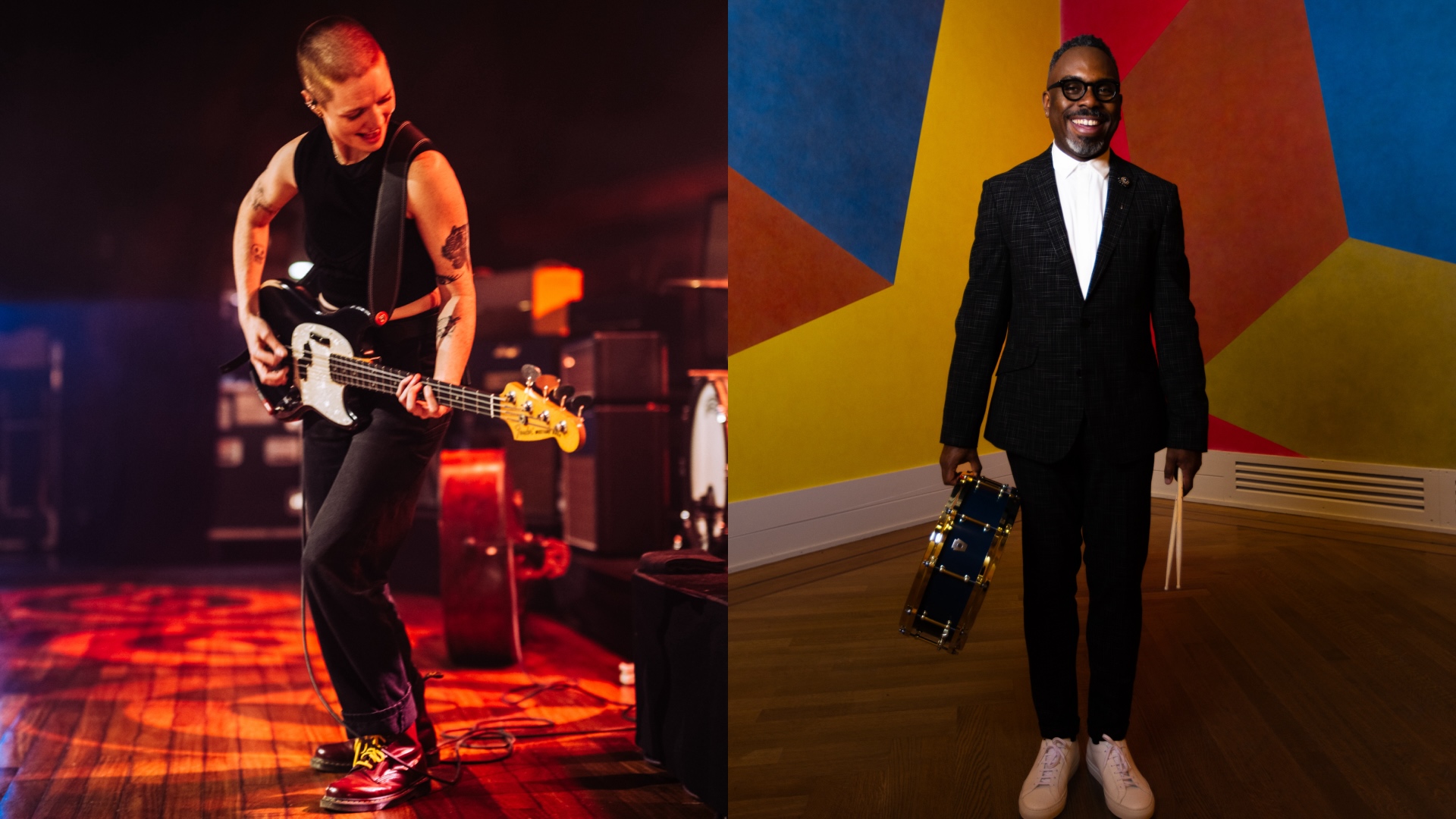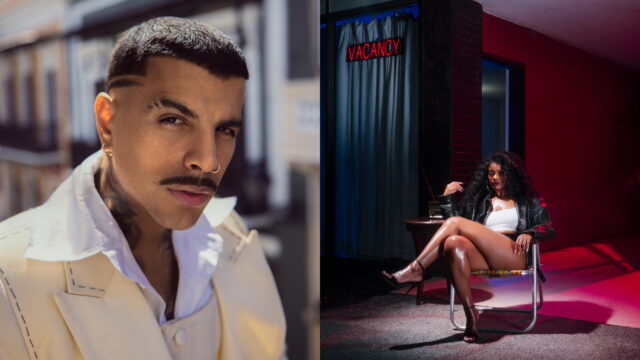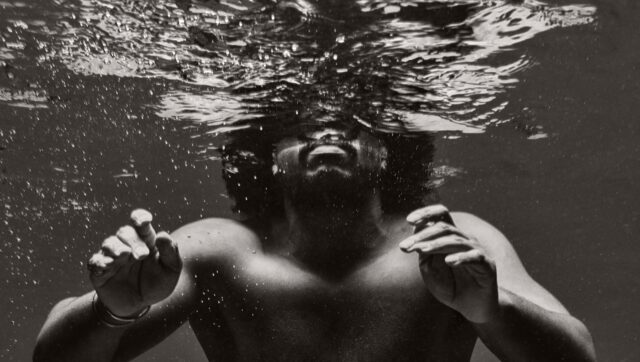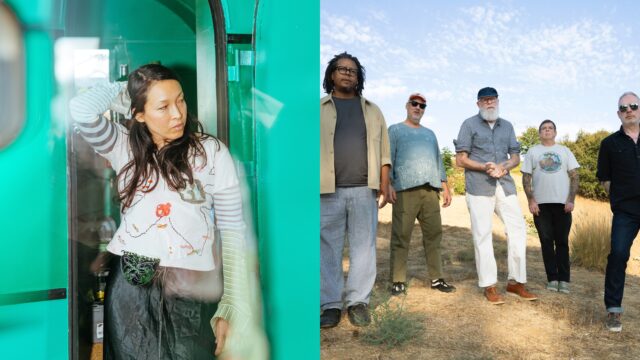How to Get the Gig
Bassist Anna Butterss and drummer Nate Smith, of Jason Isbell and the 400 Unit and Brittany Howard’s band respectively, discuss diving into the world of high-profile touring acts and why it’s important to keep your own style when helping others to realize their own.
by Brad Farberman
When the Los Angeles-based bassist Anna Butterss signed on to tour with Phoebe Bridgers in 2018 — a job that led to recording on boygenius’ recent Grammy-winner, the record — the lead-up was simple: “They gave me a few songs to learn, and I went over and we just played them together and that was kind of it.” But their first experience playing with Jason Isbell last year, which turned into a permanent spot in the 400 Unit, was a different story.
“When I agreed to do the gig, within an hour of us negotiating a rate, or maybe it was even before we negotiated a rate or all that kind of stuff, I already had, like, live recordings of about 40 different songs,” explains Butterss. “I think I learned about 35 songs for that gig, in like a week.”
For drummer Nate Smith, who moved back to Virginia recently after two decades in New York, the road to playing with Brittany Howard — and recording on both 2019’s Jaime and last month’s What Now — started even before he got an email from Howard’s manager. For an extended period, he had already been imagining what it would be like to collaborate with the singer and guitarist.
“What’s really funny is, man, I had been listening to Sound & Color for the previous two years,” recalls Smith, referring to the sophomore album from Howard’s Alabama Shakes. “So all of 2016 and ’17, I was playing Sound & Color and To Pimp a Butterfly. Like, those were the two albums I was listening to. And so, I had sort of learned that music. And I’d been — I don’t even think she knows this — but I had been sort of secretly, like, hoping for a chance to work with her in some kind of way.”
Getting the gig, and keeping it, is one thing. But finding a way to be an individual inside of someone else’s viewpoint is another. Smith and Butterss have strong ties to the jazz world, and both maintain their own creative pursuits — the drummer’s latest album, Kinfolk 2: See the Birds, was released in 2021, and the bassist’s debut, Activities, emerged the following year — but having your artistic voice be heard wherever you are can be important to a musician, and often expected from a bandleader.
“I’ve been lucky, because even before I worked with Brittany, I worked with bandleaders who really wanted me to play, and wanted me to play,” explains Smith. “Didn’t just want a drummer; they kind of wanted me. So I’m accustomed for there to be space for me to be myself in different contexts, you know? So with Brittany, she’s no different. In fact, she’s so great at it. She’s really hands off in terms of creative expression. As long as you’re playing the parts, and you’re playing in service to the song, she’s kind of beautifully hands off in that way.”
Butterss concurs, especially when it comes to the idea of transcending your instrument in order to be considered for your musical personality. But they also see it from a low-end perspective.
“As a bass player, I think flexibility is a really important skill,” says Butterss. “And adaptability. Especially I play a lot of different styles of music, with a lot of different kind of artists, so it is important to be able to have a few different approaches. Be able to approach the same song in a few different ways if someone calls for it. But I also, on the other hand, feel like I’m really lucky to be at a point in my career where most of the time, when people call me to do — especially recordings — they call me because they want me rather than they just want a bass player. Which is a really privileged position to be in. I’m really grateful for that.”
As far as shifting from your own career to being a part of someone else’s, Smith recommends putting yourself out there online. With over 350,000 followers on Instagram to show for it, the drummer has made it a point to offer different looks into his process. And on a number of occasions, others have helped.
“If it were 20 years ago, and you asked that question, it would be, ‘Man, go to jam sessions; hang out; meet people; do all that,” reflects Smith. “I still think that’s important, but I also think now it’s really important to just share your process. Share you working on music, getting better at it. Share yourself working on composing music and getting better at it. For the type of collaborators that I have worked with, I think they’re interested in a full musician. Someone who brings all that stuff to the job of playing drums on stage.”
As Smith notes, though, one shouldn’t rely exclusively on an online presence. Butterss, for instance, found the time to weave themselves into the fabric of their scene. And that effort, though organic, has paid dividends.
“I’ve been in L.A. for 10 years, and I definitely wasn’t working very much at the start, when I moved there,” says Butterss, who is originally from Australia. “And kind of being around the people who were playing the music I wanted to play — whether that was going to see shows; just hanging out; occasionally going to jam sessions or playing at people’s houses — I think just time spent doing that then eventually gets more people hearing about you, or knowing your name or recommending you.”
“It doesn’t really matter how far down you are on someone’s list — eventually your name’s gonna come up,” encourages Butterss shortly afterwards. “Which is great. But once you get a call, even if it’s for something small, you have such a big opportunity to build a reputation for yourself by just being really prepared, and professional and easy to work with and easy to be around. I think that has gotten me really far.”



